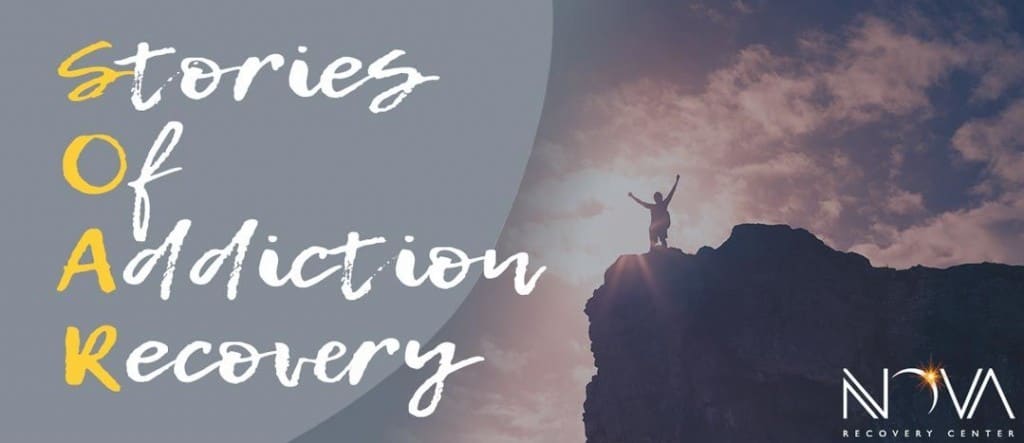Last Updated on August 11, 2023
Juliana grew up living a simple quiet life in rural Austin. Although she was surrounded by wealthy kids at school and she knew she was different, her parents worked hard to ensure that she always had everything she needed. As a child, Juliana was exposed to some partying, alcohol use, and some drug use, but her home was always a place of safety and stability.
Juliana describes herself as a “straight edge kid” throughout middle school and into early high school. Although she didn’t experiment with drugs or alcohol at this age, she did suffer from behavioral problems. She never wanted to go to school, her grades weren’t great, and she saw several different therapists, who prescribed her antidepressants.
As Juliana got a little older, she found herself trapped in a string of toxic relationships which led to her first experience with drugs and alcohol.
“I met a guy and started drinking and smoking weed at parties and things like that,” she says. “I felt like I had found a group of people who were really my friends. I didn’t know where I fit in, but suddenly, I had these ride or die type people I could hang out with. They didn’t care or judge me as long as we could get messed up together.”
A Hard and Fast Fall
“I remember the first time I tried it, it gave me so much energy. It made things so easy and all the stuff in my head just stopped,” she says. “After I tried heroin, I wanted more the next day, and then the next day, and so on. I just never really stopped.”
Within a month, Juliana couldn’t pay her rent, lost her job, and she was forced to move back in with her parents. She smoked heroin every day for two years before it progressed to IV use. At one point during that time, she recalls overdosing and waking up in the hospital to see the pained looks on her parents’ faces.
“I put my parents through so much, but they were always really forgiving and put up with a lot for a long time,” she says. “They saw the worst of everything but never gave up on me. They were the only people who were there through all of it.”
A New Year’s Eve Wake-Up Call
At the age of 20, Juliana was arrested on New Year’s Eve. She spent a few days detoxing in jail but agreed to go to treatment when she got out. She was starting to realize that heroin just wasn’t fun anymore, and although she wasn’t fully dedicated to getting sober, she was willing to try.
Juliana’s first experience in treatment lasted 30 days, but it wasn’t the type of addiction treatment she needed to be able to make a lasting change. Although she did benefit from the counseling and some time away from everything, she didn’t work the 12 steps or delve into any of the recovery work.
“I relapsed that night after I got out. I didn’t think about it and I didn’t know it was going to be so hard. As soon as I left, I got such bad cravings and it just kind of hit me,” she says.
For five years, Juliana bounced in and out of detox centers, rehabs, and sober living homes, but was never able to maintain her sobriety for longer than a month. She didn’t want to be around other people, always stopped going to meetings, and never wanted to work with a sponsor on a long-term basis.
Juliana’s last treatment experience at Nova Recovery Center started the same way they always did: being sick and tired of heroin. Although she had attended rehab at Nova several times before, Juliana had always relapsed and was unsure if treatment would ever work for her. She was starting to think that maybe she was just destined to be
miserable and addicted.
After relapsing for the final time, Juliana asked to come back to Nova, and the staff welcomed her back. Unlike all the other times before, she chose to do things differently this time around.
Even though she was only in treatment for 30 days this time around, Juliana completed all assignments she was given (even the uncomfortable ones), worked through all the 12 steps, committed to working with a sponsor, and even made amends with her parents, which she had never done before. After completing rehab, she moved into a Eudaimonia sober living home, where she established some very strong connections with other girls in recovery.
“This time around, I put myself in the center of the program, while in the past, I had sat back and watched but was too afraid to get vulnerable. I wasn’t open-minded enough to do all the work,” she says.
Today, Juliana has been sober for 14 months, she just started a new job that she loves, and she has healthy relationships. She even goes back to Nova every month to share her experience and mentor other girls who are currently in treatment.
“Now, I want to be sober more than I want to use,” she says. “I know a lot of people who have died and that totally could have happened to me. It took me years and I’m just now getting it, so just don’t give up. It’s possible to have a good life but it takes getting connected to people and a program that will hold you accountable.”
“We don’t want to regret the past or shut the door on it, but we need to take that and use it to help people,” she says, quoting the Big Book. “Something good can come from all this.”
If you or a loved one is ready to take the next step and start your journey to recovery, call Nova Recovery Center today. We’re here to help you through each stage of the treatment process.
